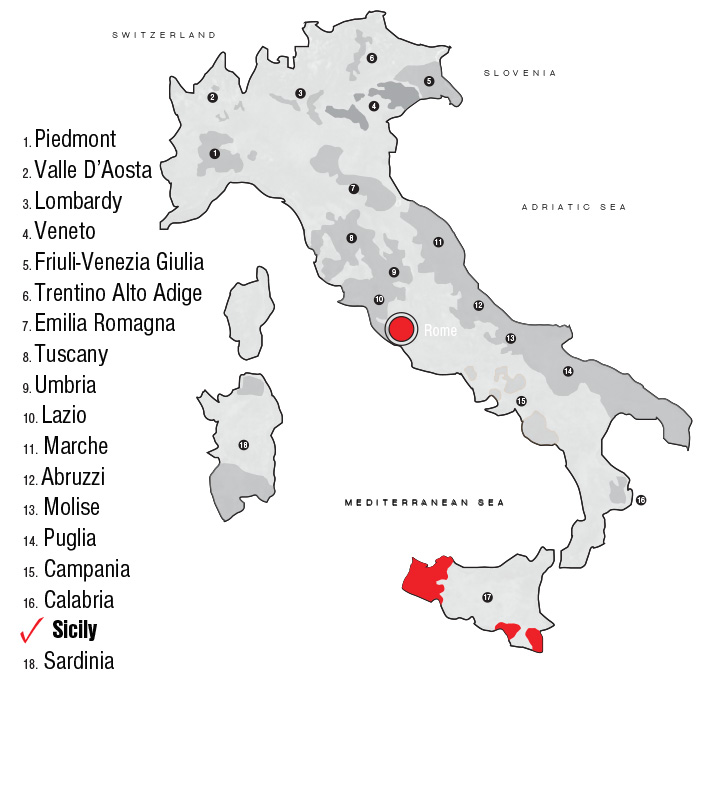|
  he Intorcia winery was established in 1930 by the Intorcia family who still manages the business. The establishment has been extended in different periods during the years until its complete restructure; since then, constant modifications have been made to catch up with the development of new technologies based on the product’s quality. he Intorcia winery was established in 1930 by the Intorcia family who still manages the business. The establishment has been extended in different periods during the years until its complete restructure; since then, constant modifications have been made to catch up with the development of new technologies based on the product’s quality.
Born as a “baglio”, a small family business, the Intorcia’s wineries nowadays are made up of establishments that extend themselves over an area of 25,000 sq. m which can hold more than one hundred thousand hectolitres and suggestive ageing storehouses holding more than 20,000 hl in oaken casks. The business has always distinguished itself for the production of “Marsala” wine, fortified wines (Zibibbo, Moscato, Malvasia) and I.G.T Table Wines (Nero d’Avola and Inzolia). It is one of the businesses joining the Consorzio. Culture, history, passion and tradition are only just a few of Marsala’s intrinsic elements.
A wine born together with the history of the town; it was named after once John Woodhouse landed in its port in 1773 and was able, together with his sailors, to taste the “perpetuum”: a typical strong and sturdy local wine. It was the typical wine of the area, usually aged in wooden casks added with young wine some year later.
Soon after, the Woodhouse’s began commercialising that product importing it into England and settling permanently in Marsala. From that moment and after a short period of time, the wineries in Marsala multiplied: Ingham and Whitaker were the ones who gave a great push to the growth in production and commercialization. At the beginning of the 20th century the Intorcia family was the one to invest in Marsala (1930) and to introduce it to the world.
At last, Marsala was the first among Italy’s wines to be recognized, by a forerunner law (Ministerial Order of 15 October 1931, signed by the Ministers Mr. Acerbo and Mr. Bottai, which regulated the “ Production boundary of Marsala’s typical wine”), the one known, nowadays, as DOC (Controlled Denomination of Origin).
|
